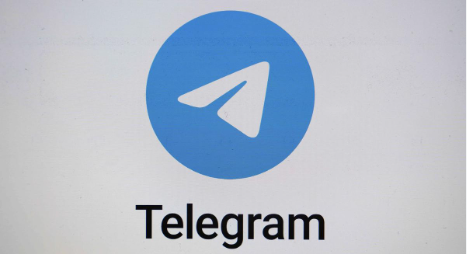Security Threat in a significant move aimed at bolstering its national security, Ukraine has banned the use of Telegram on state-issued devices due to increasing concerns about data breaches and espionage risks. The decision comes as Ukraine remains embroiled in its defense against Russian aggression, and it underscores the critical role that digital security plays in modern warfare. With cyber warfare becoming a pivotal battleground, the Ukrainian government’s decision to prohibit Telegram on official devices is being viewed as a precautionary measure to protect sensitive communications, safeguard classified information, and ensure the integrity of government operations.
This article delves into the reasons behind the ban, the broader cybersecurity concerns facing Ukraine, the potential vulnerabilities of Telegram as a platform, and how this move fits into the wider landscape of digital warfare between Ukraine and Russia.
Telegram: A Brief Overview
Telegram, a popular messaging app founded by Russian-born brothers Pavel and Nikolai Durov in 2013, has gained widespread adoption due to its user-friendly interface, speed, and focus on privacy. The platform offers end-to-end encryption for certain chats, known as “secret chats,” but standard chats are not encrypted by default, raising concerns about potential vulnerabilities.
With more than 700 million active users globally, Telegram has become a major player in the world of messaging apps. It is favored for its ability to host large public channels, distribute content, and provide anonymity to users. While these features make it a popular platform for open discussions and information sharing, they also raise significant concerns about the security of data transmitted through the app.
The Ban: Ukraine’s Concerns with Telegram
Ukraine’s decision to ban Telegram on state-issued devices highlights the growing concerns surrounding the app’s security. As the country grapples with ongoing Russian aggression, securing its digital infrastructure has become paramount. Telegram’s links to its Russian origins and the app’s potential vulnerabilities have raised red flags for Ukrainian authorities, leading to the ban.
1. Data Vulnerability and Lack of Full Encryption
One of the main concerns for the Ukrainian government is Telegram’s lack of full end-to-end encryption for all communications. While “secret chats” are encrypted, regular chats are not. This leaves a significant portion of communications potentially exposed to interception. Given that state-issued devices are used for official communication, the risk of sensitive government information falling into the wrong hands is a significant concern.
In a time of war, where every piece of information can be weaponized, any potential vulnerability in communication tools must be addressed. Ukraine’s security apparatus, which already deals with constant cyberattacks from Russian hackers and intelligence agencies, cannot afford to rely on a platform with known weaknesses in encryption.
2. Telegram’s Russian Origins and Potential Security Risks
Although Telegram’s founders have distanced themselves from the Russian government, the app’s Russian roots remain a concern for Ukraine. The fear is that the app could be compromised or used as a tool for espionage, especially in light of Russia’s aggressive tactics in the war. Even the perception that Telegram could be manipulated by Russian intelligence agencies poses a risk for Ukrainian state communications.
Ukraine’s decision to ban Telegram comes amidst heightened fears that the app could serve as a backdoor for Russian intelligence to access sensitive state information. Despite assurances from Telegram’s leadership that the platform is secure, Ukrainian officials are unwilling to take the chance, given the stakes involved.
3. Cyber Warfare and Espionage Threats
The Ukraine-Russia conflict has extended well beyond traditional warfare, with cyberattacks becoming a key element of the ongoing battle. Both sides have engaged in digital attacks, targeting critical infrastructure, communication networks, and governmental institutions. Russian cyber operations, including hacking and disinformation campaigns, have proven to be a potent weapon in destabilizing Ukraine.
Given this context, securing communication channels within the Ukrainian government is of utmost importance. Banning Telegram on state-issued devices is a strategic move to mitigate the risk of cyber espionage. With Telegram’s vulnerabilities and potential susceptibility to Russian interference, the app represents an unnecessary security risk for state officials engaged in sensitive communications.
Ukraine’s Broader Cybersecurity Strategy
Ukraine has made significant efforts to bolster its cybersecurity infrastructure in response to the increasing number of cyberattacks it faces from Russia. As the war progresses, Ukraine has faced waves of cyber offensives targeting its government agencies, critical infrastructure, and military communications. The war has shifted the way Ukraine approaches cybersecurity, focusing on building resilience and protecting its digital infrastructure.
1. Protecting Critical Infrastructure
One of Ukraine’s key concerns is the protection of its critical infrastructure, including energy systems, transportation networks, and financial services. Russian cyberattacks have previously targeted Ukrainian power grids, causing blackouts and disruption. Securing these systems from further attacks has become a top priority, with Ukraine investing heavily in cybersecurity measures and working closely with international partners to strengthen its defenses.
By banning Telegram on state-issued devices, Ukraine is taking a proactive step to protect sensitive communications that could compromise critical infrastructure. Government officials often communicate via state-issued devices, and any leak of information could have disastrous consequences for the country’s security.  For the more information click on this link
For the more information click on this link
2. International Cooperation on Cybersecurity
Ukraine has recognized the importance of working with international allies to enhance its cybersecurity capabilities. Since the onset of the war, Ukraine has partnered with NATO and the European Union to strengthen its cyber defenses. The country has also received support from private companies and cybersecurity firms, which have provided expertise and technology to combat cyberattacks.
The move to ban Telegram is part of a broader effort to secure Ukraine’s digital infrastructure in collaboration with international partners. By limiting the use of potentially vulnerable apps, Security Threat Ukraine is aligning its cybersecurity policies with best practices recommended by global experts.
3. Information Warfare and Disinformation
Russia’s strategy in Ukraine has not only involved physical warfare but also information warfare. Disinformation campaigns, aimed at sowing discord, spreading false narratives,Security Threat and undermining trust in the Ukrainian government, have been a central feature of the conflict. Social media platforms, including Telegram, have played a role in the dissemination of fake news and propaganda.
By banning Telegram on state-issued devices, Security Threat Ukraine is addressing the risk that the platform could be used to spread disinformation among government employees. Ensuring that officials rely on secure and trusted communication channels is essential in the fight against Russian propaganda.
Implications for Telegram’s Reputation
The ban on Telegram by Ukraine raises questions about the platform’s reputation and security credentials. While Telegram has long marketed itself as a privacy-focused alternative to apps like WhatsApp and Facebook Messenger, its perceived vulnerabilities are starting to take a toll.
1. Privacy vs. Security
Telegram’s focus on privacy has made it popular among users who value anonymity and encryption. However, the app’s partial encryption model, which only applies to secret chats, Security Threat has drawn criticism from cybersecurity experts. The platform’s ability to store data on cloud servers, rather than keeping it solely on users’ devices, further complicates its security profile.
The ban in Ukraine highlights the tension between privacy and security. While Telegram offers certain privacy features, the lack of comprehensive encryption for all communications makes it a less secure option for government use, particularly in a war-torn country like Ukraine, where cybersecurity is paramount.
2. Potential Impact on Telegram’s User Base
While the ban is currently limited to state-issued devices in Ukraine, it could have a ripple effect on Telegram’s user base, particularly among government officials and security-conscious individuals. The perception that Telegram is vulnerable to exploitation by Russian intelligence could lead other countries or organizations to reassess their use of the app for sensitive communications.
In contrast, Telegram is likely to remain popular among regular users, particularly in regions where privacy is a primary concern. The platform’s large user base and its use for information sharing during crises may insulate it from widespread damage to its reputation.  For the more information click on this link
For the more information click on this link
3. Telegram’s Response
As of now, Telegram has not issued an official statement in response to Ukraine’s ban. However, the company is likely to face pressure to address the concerns raised by Ukraine and other governments regarding its security features. Enhancing encryption for all communications, Security Threat improving transparency, and demonstrating a stronger commitment to safeguarding user data could help Telegram mitigate the damage to its reputation.
The Role of Telegram in the Ukraine War
Despite the ban on state-issued devices, Telegram has played a significant role in the Ukraine war, particularly in the realm of information dissemination. Both Ukrainian and Russian officials, as well as independent activists and journalists, Security Threat have used Telegram to communicate with the public, Security Threat share updates, and document the war’s progress.
1. A Platform for Open Communication
Telegram’s public channels have served as a vital tool for information sharing during the war. Ukrainian officials have used the platform to communicate directly with citizens, providing real-time updates on military operations, humanitarian aid efforts, and evacuation routes. The app’s anonymity features have also made it popular among activists who fear reprisal for their actions.
For Russia, Telegram has been a platform for both official government communications and disinformation campaigns. Pro-Russian channels have used the platform to spread propaganda, often aimed at discrediting the Ukrainian government and framing Russian military actions in a positive light.
2. The Risk of Disinformation
While Telegram has provided a platform for open communication, it has also been used to spread false information and disinformation. The app’s anonymity and lack of moderation make it a fertile ground for the dissemination of fake news, conspiracy theories, Security Threat and propaganda.
The Ukrainian government’s decision to ban Telegram on state-issued devices reflects concerns that the app could be used to infiltrate official channels with disinformation. By restricting the use of Telegram, Ukraine aims to prevent the spread of false information that could undermine its military efforts and public trust in the government.
Conclusion: A Necessary Step for Ukraine’s Security
In the midst of an ongoing war with Russia, Ukraine’s decision to ban Telegram on state-issued devices is a calculated move to mitigate the risks posed by cyber espionage, data breaches, and disinformation. While Telegram remains a popular platform for private users, its vulnerabilities make it an unsuitable tool for official government communications, Security Threat particularly in a high-stakes environment like Ukraine.
As Ukraine continues to navigate the challenges of digital warfare, safeguarding its communication channels is critical to maintaining national security. By taking steps to secure state-issued devices, Ukraine is demonstrating its commitment to protecting sensitive information and ensuring the integrity of its government operations. In the larger context of the war, this decision reflects the evolving nature of modern conflict, Security Threat where cybersecurity plays an increasingly important role in national defense.
The ban on Telegram serves as a reminder of the complex interplay between technology, privacy, and security in the digital age. As governments worldwide grapple with these issues, Ukraine’s decision may inspire other nations to reevaluate their own cybersecurity practices and the tools they rely on for official communications. ALSO READ:-Hacker Uses Telegram Chatbots to Leak Data of Star Health: A Deep Dive into Data Breach, Cybersecurity, and the Growing Threat of Telegram Bots” 2024




